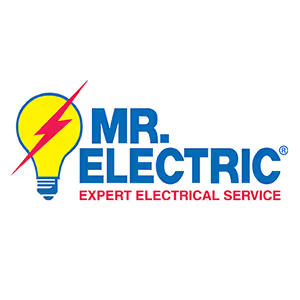Mr. Electric is an electrical services brand providing installation, upgrades, and repairs for homes and businesses. The franchise prioritizes safety and customer satisfaction.

Key Insights
- Mr. Electric, established as a service provider, has a long-standing history of delivering essential electrical solutions. The franchise operates on a model that emphasizes qualified technicians performing a wide range of residential and commercial electrical services.
- The business functions through a network of independently owned and operated franchises, each adhering to established operational standards and brand guidelines. This structure facilitates consistent service delivery and brand recognition across various locations.
- Mr. Electric is part of the broader home services industry, a sector experiencing consistent demand due to ongoing maintenance, upgrades, and the inherent need for safe and reliable electrical systems in homes and businesses.

Franchise Fee and Costs to Open
Exploring the financial picture of Mr. Electric gives insight into both the upfront commitment and the potential revenue opportunity. According to FDD Item 7, opening this franchise typically involves an investment in the range of $152,000 - $314,925, along with a franchise fee of $42,500 - $42,500.
Financial Performance and Revenue
Yearly gross sales of $342,631 and estimated earnings of $41,116 - $51,395 show the potential financial performance of this franchise. These figures are crucial for prospective franchisees as they help to project revenue and profitability. They offer insight into the business's ability to generate income and can be used to compare its performance against other investment opportunities. The Franchise Payback Period of 5.5-7.5 provides an estimation of the time it might take for an owner to recover their initial investment. This metric is a key consideration for anyone evaluating the financial viability of a franchise, as it relates directly to the speed at which the business can become profitable. A shorter payback period can indicate a faster return on capital, which is a significant factor in making an informed decision about a franchise investment.
Training and Resources
Mr. Electric provides comprehensive training for new franchisees. This initial program offers in-depth instruction over a two-week period, conducted at the franchisor's training facility. Mr. Electric offers resources covering operational procedures and business management. The franchise also recommends ongoing support and access to a robust network.
Legal Considerations
Legal considerations for a Mr. Electric franchisee are outlined in the Franchise Disclosure Document (FDD) and the Franchise Agreement. Note that this franchise discloses lawsuits and/or bankruptcy information in its FDD, which may impact your evaluation. Subscribe now to access more details and be sure to consult a qualified attorney before proceeding.
Challenges and Risks
Operating a Mr. Electric franchise presents several considerations. Navigating local market competition requires understanding existing service providers and differentiating offerings. The operational complexity of managing technicians, scheduling, and customer service demands efficient systems. Reliance on specific supply chains for parts and equipment may impact project timelines and costs, necessitating proactive inventory management and vendor relationships.



